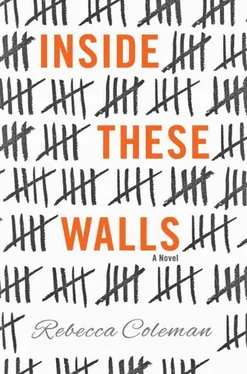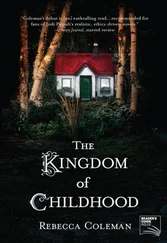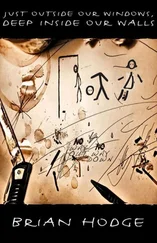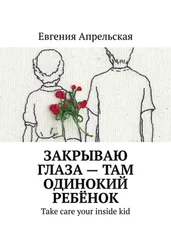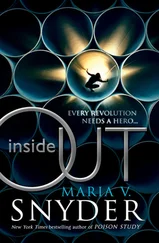One evening—Ricky was still living at his parents’ house then— we had a particularly nice time together and made plans to get together again the following day. Clinton came over with Susie and their son to visit with our parents, and when Ricky pressed the doorbell and Clinton answered it, Ricky attacked him. Later Ricky explained it to me this way: “I had this one fantasy about killing your stepbrother, and another one about what you and I were doing last night. I was expecting you to answer the door, and when he showed up instead, I switched fantasies. It was like a reflex.”
Needless to say, Clinton insisted our parents not call the police about that incident. I think it was clear to him then that Ricky knew what he had done, and bringing the police into it was certainly the last thing Clinton wanted.
So perhaps it will make more sense now why Clinton was so eager to speak out against Ricky at the trial, and so quick to voice his suspicions that Ricky was capable of sexual violence. It’s my observation that a habitual liar is always the first to suspect others of dishonesty, and the public champions of morality often prove to be those with the dirtiest secrets. I’m sure that in Clinton’s defense of me, however, he believed he was settling a debt in a way that must have soothed his conscience. Clinton is a delusional individual, and one of my many regrets is that he managed to get rid of me so easily.
Thank you again, ever so much, for the letters from Ricky, and I hope to be in touch with you again soon.
Yours truthfully, Clara Mattingly
* * *
Through the reinforced window alongside the breakfast line I can see a flutter of activity over at the Intake door—lots of police cars, two dark extended vans, several cars from the Department of Corrections. Farther away there are news trucks, their twisted antennae and satellite dishes reaching up like beanstalks. I rest my hand on the windowsill and watch through the crosshatched wire, and am rewarded with a glimpse of a small figure in an orange jumpsuit and black bulletproof vest, her wrists shackled behind her back, being whisked through the double doors. Penelope Robbins has arrived. The Sacred Heart alumna is about to get her delousing and body cavity search, and I’ll bet she isn’t going to like it.
As breakfast ends I hear my name called down to the visiting room again, and I’m deeply pleased. It hasn’t been very long since Annemarie’s last visit, and she hadn’t even sent a letter to tell me she was coming. Without Janny I have felt especially lonely, and the company is most welcome. Today there are many people milling around the room, and they’ve opened up the patio in spite of the blazing heat outdoors. I look around, but I don’t see her. As the officer unshackles me I scan the room, feeling a frown line form between my eyebrows, but still, she isn’t here. And then, just as I’m standing there like a lonely child on the playground, a man rises from the bench along the wall and comes toward me.
He isn’t anyone I know—that much I can tell. He’s in his late forties, fifty perhaps, with soft eyes but a tight jaw that suggests he’s endured things. His silver hair is shaggy and layered, but thinned to a widow’s peak at the top, and he has the deep tan of a man who has spent a lifetime under the sun. As he approaches me I look him up and down—in his jeans and a button-down shirt that look like a carpenter’s best outfit—but I can’t make any connection. I wonder if he has me confused with someone else.
“Clara,” he says.
I stare back, but I just don’t know him.
His mouth pulls tight. “You’re still angry, aren’t you,” he says, and he nods in a resigned way. The glance he casts on me is chagrined, and all of a sudden, all at once—at the sight of his clear green eyes, up close—I throw my arms around his neck and press my body along the length of his, holding to him as if he can save me from the edge of a bridge. It’s Forrest. It’s Forrest Hayes, and I’m sobbing, and an officer is pulling me off of him, forcing me toward a seat.
“No more of that,” the officer commands, “or I terminate this visit. You got it?”
I nod and cry. I sit. This is the man who testified against me, the one who lied and snitched to save himself, and I know every bit of that, but I still can’t control the rush of strange, spontaneous fondness—of love —I feel at his presence. I press the front of my uniform blouse to my eyes to absorb the tears and try to get my breathing back to a more even pace. He sits down cautiously across from me.
“Sorry for upsetting you,” he says. “Or…whatever that is.”
I can’t even speak. I only nod again.
“I thought you were still mad at me,” he muses. Oh, I am , I think. I can’t meet his eyes, and so I watch his hands as they fumble for a casual posture, one flat but fidgety on the table, the other rubbing the side of his thumb beneath his mouth. He wears no wedding ring.
“So how’s it going?” he asks, and I finally lock eyes with him. He holds the gaze for a moment, then looks down uncomfortably. The degree to which he has aged is absolutely bewildering. The headful of gray hair, the tiredness around his eyes. He was a bone-skinny young man in a jean jacket covered in heavy metal band patches, a sharp-jawed kid with a rock-and-roll mullet. I can still see that kid in him now if I peer hard, but it’s a pure creative exercise. He did seven months in the county jail, that’s all. He handed out equal portions of his sentence to all his friends. Shared with the whole class, like teachers always demand you do with candy.
“Listen, Clara,” he says. “I came a long, long way to see you. I live in Phoenix now, and I took the day off work because I can’t call you here and I hate writing. But I’ve got to tell you about this.”
I raise my eyebrows in reply. Wipe my cheek with the heel of my hand.
“A woman called me a few days ago. She says she’s your daughter. Says you know about her. And she thinks I’m her father.”
Now I blurt a breathless laugh. “What?”
“So you don’t know about her. I suspected she was a con artist.”
I shake my head. “No, I mean, I do. But I didn’t suggest to her that you’re her father. I didn’t even imply it. I told her—she asked if her father was still alive, and I told her no.”
“Well, she didn’t sound too convinced, but she said she was going with a process-of-elimination thing and wanted me to do a cheek swab. You know, a genetic test. Obviously I know I don’t have a child with you, but—” He shrugs. “I don’t one-hundred-percent know I don’t have a child that age with somebody else. I thought maybe she’s trying to get me to take one where I’m convinced it’s wrong, but it’s really for a case where, for all I know, she could be right.”
“No, no. It’s nothing like that.” I rub my forehead wearily and then look up at him. The room is too close, too filled with tightly-packed inmates and their overeager relatives. “Do you mind if we go outside?” I ask.
We walk out onto the patio, where the visitors are more spread out and there’s a slight breeze that gathers beneath the awning. Away from all the listening ears, it’s easier to talk. “I had a baby not long before the trial,” I explain. “She found me a few months ago. She wants to know who her father is, and I wouldn’t say.”
Forrest grins. He looks truly delighted by this, like a proud father himself. “It has to be Ricky.”
“Of course it’s Ricky, but I don’t want to tell her that. I told her it wasn’t him, and when she pressed me I implied—or I thought I implied—that it was Jeff Owen. I said her father was an artist, that I shouldn’t have been involved with him, and that he was part of the whole sordid story. I don’t know how she’d get you out of that.”
Читать дальше
